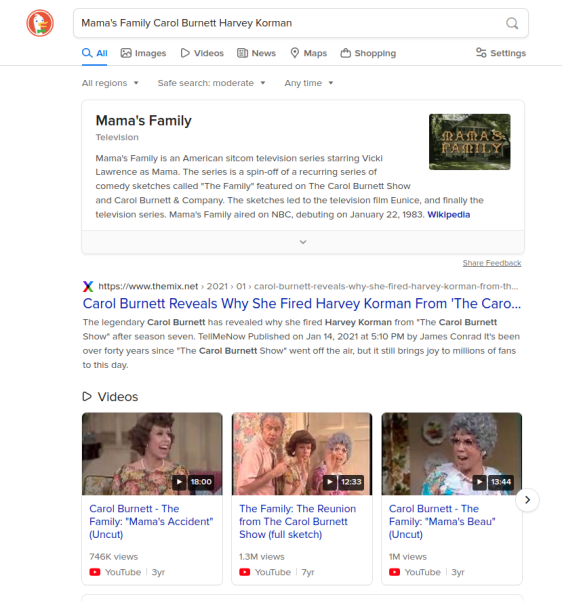By ResearchBuzz
NEW RESOURCES
Library of Congress: What’s new online at the Library of Congress – September 2023. “Updated collections this month include the Foreign Legal Gazettes, which now features new issues of from Burkina Faso, the Philippines, and Ecuador. And two new sections were added into the Occupational Folklife Project collection: Training the Troops: Military Role-Players of Fort Polk, Louisiana and Immigrant Women Artists in Oklahoma : Archie Green Fellows Project, 2020-2021.”
Medievalists: 61 Medieval Manuscripts digitized and available online. “One of the largest databases of medieval manuscripts has added 61 new items to its collection. They include manuscripts from the Franciscan order as well as fragments dating back to the eighth century. The digitized manuscripts were added to e-codices: The Virtual Manuscript Library of Switzerland, which is run out of the University of Fribourg. The new additions bring their collection to over 2500 items.”
Ivy Plus Libraries Confederation: IPLC Launches the Woman, Life, Freedom Movement of Iran Web Archive. “The Ivy Plus Libraries Confederation is pleased to announce the launch of the Woman, Life, Freedom Movement of Iran web archive, curated by librarians at the IPLC. This web archive preserves material on, about, and from the Woman, Life, Freedom movement of Iran, which emerged in the wake of the 2022 police killing of Mahsa Jîna Amini.”
TWEAKS AND UPDATES
Mashable: Everything you need to know about X CEO Linda Yaccarino’s disastrous interview. “Linda Yaccarino, the CEO of social media platform X, was the headline guest at Vox Media’s Code 2023 event earlier this week. CNBC’s Julia Boorstin interviewed Elon Musk’s handpicked CEO, who is tasked with bringing advertisers back to the platform formerly known as Twitter. As you may have seen, thanks to all the social media chatter surrounding the event, the interview did not go well for Yaccarino. In case you missed it, Mashable has broken down the most intriguing moments of Yaccarino’s disaster of an interview at the tech conference.”
New York Times: Fact Checkers Take Stock of Their Efforts: ‘It’s Not Getting Better’. “The number of fact-checking operations at news organizations and elsewhere has stagnated, and perhaps even fallen, after a booming expansion in response to a rise in unsubstantiated claims about elections and the pandemic. The social networking companies that once trumpeted efforts to combat misinformation are showing signs of waning interest. And those who write about falsehoods around the world are facing worsening harassment and personal threats.”
USEFUL STUFF
MakeUseOf: 10 Vivaldi Features That Google Chrome Doesn’t Have . “Vivaldi is a web browser that has existed since about 2015. Released by Vivaldi Technologies, this browser intended to revive features Opera lost after it transitioned to a Chromium engine. It remains a relatively small browser in terms of user base and isn’t an especially big threat to Chrome’s browser dominance at the moment. However, Vivaldi boasts a multitude of features you won’t find in Google Chrome. It is one of the most feature-rich web browsers for surfing websites. These are some of the more notable Vivaldi features that Chrome doesn’t have.”
AROUND THE INTERNET WORLD
Media Matters for America: X is placing ads for the NFL on prominent white nationalist accounts. “X (formerly Twitter) has been placing advertisements for the NFL on prominent white nationalist accounts, including accounts that have attacked the league by calling it anti-white. While X has been monetizing those racist accounts, which collectively have over a million followers, a senior NFL executive recently praised company CEO Linda Yaccarino for supposedly ‘doing great work innovating to make the platform better.'” Needless to say NFL has backtracked.
Motherboard: What It’s Like To Own the Cars That Became a Viral Sensation To Steal. “[Sonya] Jordan’s Kia was one of 642 vehicle thefts in Pierce County that month. Auto thefts have spiked in Washington state over the last two years, according to the Puget Sound Auto Theft Task Force, reflecting a nationwide trend fueled almost entirely by a design decision in Kia and Hyundai vehicles that make them easy to steal, exacerbated by a Tiktok and Instagram subculture dubbed ‘Kia Boys’ dedicated to showing off stolen vehicles.”
SECURITY & LEGAL
NBC News: Have you got our treasure? British Museum wants help finding missing ancient loot. “The British Museum in London this week appealed to the public to help recover around 2,000 lost, stolen or damaged items from its vast collection. Details and images were released Wednesday of the missing loot — which includes jewelry and gems from the Greek and Roman eras — in the hope of generating some leads on where they ended up.”
The Verge: Passkeys: all the news and updates around passwordless sign-on. “Passkeys are built on WebAuthn (or Web Authentication) tech and stored directly on your device. They are supported by companies like Apple, Google, and Microsoft because they’re more secure than passwords or PINs which can be stolen. Password managers can help backup and sync passkeys across all your devices. It’s expected that passkeys will eventually replace passwords entirely, though it’s going to take some time. Here you can follow all the updates and developments — including which companies have rolled out support in preparation for a passwordless future.” Good afternoon, Internet…
Do you like ResearchBuzz? Does it help you out? Please consider supporting it on Patreon. Not interested in commitment? Perhaps you’d buy me an iced tea. I live at Calishat.
October 3, 2023 at 12:44AM
via ResearchBuzz https://ift.tt/m7jydzt



















